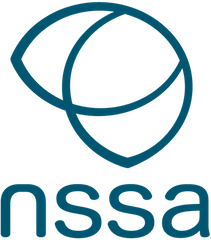Dravet Syndrome and COVID-19, who’s calling the shots?
Hi everyone! Thought I might take the time to explore how COVID-19 continues to shape our understanding around epilepsy. For this month’s blog post I will explore the impact of the COVID-19 vaccine on patients with Dravet syndrome.
Dravet syndrome (DS) is a rare and severe developmental and epileptic encephalopathy previously known as severe myoclonic epilepsy of infancy. DS typically presents in the first 12-18 months of life and are characterised by prolonged, febrile and afebrile, focal (usually hemiclonic) and generalised tonic-clonic seizures. These seizures are usually intractable, and pharmaco-resistant with episodes of status epilepticus mostly in those under the age of 5. Development is often normal at seizure onset, however over time developmental regression becomes evident. DS is caused by pathogenic mutations in the sodium channel gene SCN1A in >80% of cases. Less pathogenic variants result in the milder syndrome of Genetic Epilepsy with Febrile Seizures plus (GEFS+).
Immunisations are considered by the World Health Organisation as the most effective medical intervention for prevention of death and reducing disease in communities. Vaccinations as a means of immunisation are highly effective and may only cause the mildest of adverse reactions such as a fever. However in some cases there are rare serious adverse events such as seizures. Seizures that occur within 14 days of a vaccine are often referred to as vaccine-proximate (VPS), however this differs across literature. There are some genetic epilepsies that have a strong association with VPS, and these include DS and GEFS+. VPS; particularly those resulting in status epilepticus in infants and young toddlers should raise suspicion for DS, as around 30% of children with DS present with VPS as their first seizure.
Some time back, the Diphtheria-tetanus-pertussis (DTP) vaccination had been alleged to cause an encephalopathy resulting in seizures and intellectual disability. This “vaccine encephalopathy” had clinical features typical of DS and so led to claims that the DTP vaccine caused DS. However this is a misconception and has been instead shown that vaccinations trigger earlier seizure onset in children with DS. There is no difference in developmental and seizure outcomes in children who had had VPS as their first seizure as opposed to children with DS and seizures unrelated to immunisation. And so; it is important to highlight that it is in fact the underlying SCN1A mutation which carries the predisposition for DS rather than vaccines themselves.
The COVID-19 pandemic continues to grow, with hundreds of thousands of new cases daily at a global level. Almost 5 billion of the world’s population have been vaccinated fully against COVID-19. COVID-19 vaccines are important in protecting against severe disease, hospitalisation and death in all age groups and remain the best defence available against COVID-19.
COVID-19 has caused significant levels of stressors on families living with DS but now vaccine hesitancy remains rife. On one hand, those with DS may be at a higher risk of exposure to COVID-19 due to difficulties in adhering to protective measures such wearing masks and social distancing. Along with this, caregivers and families of those living with DS have resorted to social isolation to counterbalance concerns of exposure adding to the psychosocial burden for these families. For these families it is critical to understand the side effects and impact of the COVID-19 vaccination on those with DS and whether the risk of increased seizure activity outweighs the burdens and impact of COVID-19 exposure.
An article published earlier this year by Hood and colleagues in Epilepsia investigates this very question and provides families living with DS evidence to assist with this difficult decision. This paper surveyed caregivers of those with DS and over one third of survey responders did not plan to vaccinate. At the time of data collection; those under 12 were not eligible and yet only 50% of caregivers indicated intent to seek vaccination. The key reason for vaccine hesitancy was indeed the concerns of increased seizure activity or status epilepticus, and this was exacerbated by prior experience with VPS. Of those not intending to vaccination, 53% had prior escalation of seizures with non COVID-19 vaccinations. However in this study of 278 survey responders, in the 120 who were vaccinated against COVID-19, there was only increased seizure activity in 13% of these DS individuals. There was no documented episodes of status epilepticus, and 50% reporting no side effects.
So what about the alternative? There is limited evidence available as to the impact of COVID-19 on patients with DS. However other studies have been able to address that patients that have neurological diseases, not particularly DS but epilepsy, there is a higher chance of developing neurological complications when infected with COVID-19. One study last year by Balestrini and colleagues indicated that 50% of those with DS who had COVID-19 infection had worsening in seizures. And although there is limited evidence in this area; seems to indicate that there is less risk in vaccination as opposed to exposure.
This data is reassuring and provides both healthcare providers and caregiver’s important information to guide in decision making in regards to COVID-19 vaccination administration in those with DS. And although there is understandable hesitation, it appears that the risk of seizures following COVID-19 vaccination is far less than the risk of seizures due to COVID-19.
References:
1. Zuberi, S., Wirrell, E., Yozawitz, E., Wilmshurst, J., Specchio, N., Riney, K., Pressler, R., Auvin, S., Samia, P., Hirsch, E., Galicchio, S., Triki, C., Snead, O., Wiebe, S., Cross, J., Tinuper, P., Scheffer, I., Perucca, E., Moshé, S. and Nabbout, R., 2022. ILAE classification and definition of epilepsy syndromes with onset in neonates and infants: Position statement by the ILAE Task Force on Nosology and Definitions. Epilepsia, 63(6), pp.1349-1397.
2. McIntosh, A., McMahon, J., Dibbens, L., Iona, X., Mulley, J., Scheffer, I. and Berkovic, S., 2010. Effects of vaccination on onset and outcome of Dravet syndrome: a retrospective study. The Lancet Neurology, 9(6), pp.592-598.
3. Ben-Menachem, E., 2011. Vaccination and the Onset of Dravet Syndrome. Epilepsy Currents, 11(4), pp.120-122.
4. Hood, V., Berg, A., Knupp, K., Koh, S., Laux, L., Meskis, M., Zulfiqar‐Ali, Q., Perry, M., Scheffer, I., Sullivan, J., Wirrell, E. and Andrade, D., 2022. COVID‐19 vaccine in patients with Dravet syndrome: Observations and real‐world experiences. Epilepsia, 63(7), pp.1778-1786.
5. Balestrini, S., Wilson, G., Eldred, C., Evans, H. and Sisodiya, S., 2021. The impact of COVID‐19 in Dravet syndrome: A UK survey. Acta Neurologica Scandinavica, 143(4), pp.389-395.
Written by Neerrajah Nadarajah
Monash Hospital - Melbourne

